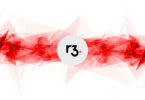Today the Enterprise Ethereum Alliance (EEA) unveiled its new testing sandbox. This enables enterprise blockchain projects and distributed apps (dApps) to simulate real-world internet issues such as low bandwidth experienced in some jurisdictions or network delays (latency). It also allows solutions to independently verify any scalability metrics they might claim, such as transactions per second.
Ultimately early testing will reduce the need for businesses to spend significant sums before launch. The always-on solution is available to EEA members.
“The launch of the EEA TestNet is a major milestone on our journey to enable enterprises to deliver a superior customer experience and create new and innovative solutions,” said EEA Executive Director Ron Resnick. “The EEA’s TestNet brings us one step closer to creating an ecosystem that offers application availability from multiple vendors of choice.”
To deliver the TestNet, the EEA has partnered with Los Angeles based testing company Whiteblock. While the company boasts some high profile clients and partners such as ConsenSys, Starkware and Samsung SDS, its main testing platform “Whiteblock Genesis” only launches today.
Whiteblock’s founder and CEO Zak Cole is also Chairman of the EEA Testing Working group. CTO Antoine Toulme spent 18 months at ConsenSys before joining Whiteblock. Other members of the working group include ConsenSys, Finality, Intel, J.P. Morgan’s Quorum, Microsoft, and Standard Chartered Bank amongst others.
In addition to performance testing, the Whiteblock platform enables customers to simulate security events such as denial of service attacks and also provides business intelligence and monitoring.
Additionally, today the EEA announced plans to launch a Certification program later in the year. The aim is to ensure compliance with EEA standards and engender customer confidence. Hyperledger launched its Certification program last year.






